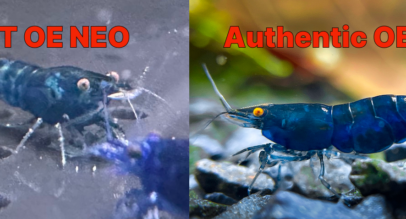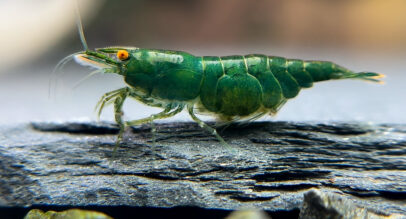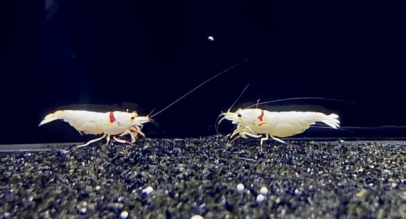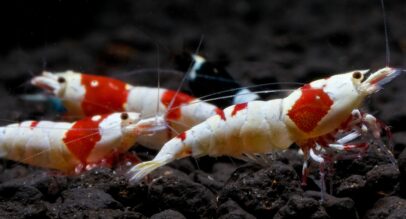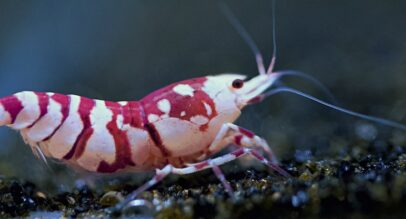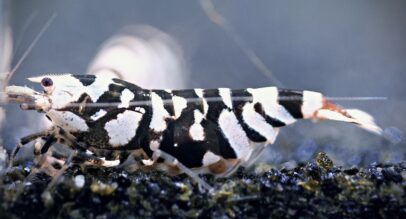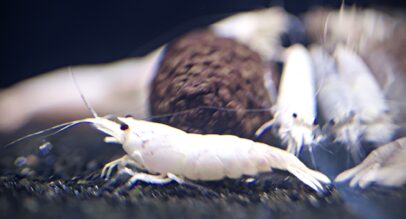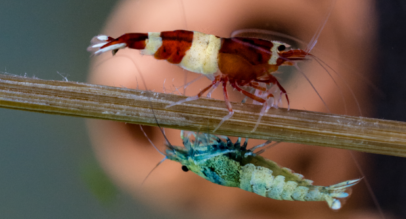Proper nutrition is the cornerstone of successful Caridina Red King Kong (RKK) shrimp husbandry. These exquisite freshwater invertebrates require a meticulously planned diet that goes far beyond mere sustenance—it’s a critical factor in their overall health, breeding success, color vibrancy, and potential longevity.
Nutritional Stakes in RKK Shrimp Breeding
For RKK shrimp breeders, diet is not just about survival; it’s a strategic element that directly impacts:
- Reproductive Success: Balanced nutrition ensures optimal breeding conditions and healthy offspring
- Color Intensity: A targeted diet can enhance and stabilize the stunning red coloration that makes RKK shrimp so prized
- Genetic Potential: Proper feeding supports the expression of desirable genetic traits
- Immune System Resilience: Well-fed shrimp demonstrate greater resistance to environmental stressors and potential diseases
The Holistic Impact of Nutrition
In the delicate ecosystem of a shrimp tank, nutrition plays a multifaceted role. It’s not merely about providing calories, but about creating a comprehensive nutritional environment that mimics the natural microhabitats these shrimp would inhabit in the wild. The right diet influences everything from molting processes to reproductive cycles, making it a fundamental aspect of RKK shrimp management.
Understanding the intricate nutritional requirements of RKK shrimp requires a deep dive into their dietary needs, feeding strategies, and the nuanced balance of nutrients that support their unique physiological demands.
Core Feeding Philosophy
The Principle of Nutritional Simplicity
The cornerstone of successful RKK shrimp nutrition lies in a deceptively simple approach: less is more. Unlike many aquarium inhabitants, these delicate invertebrates thrive on a minimalist feeding strategy that prioritizes quality over quantity. The Peiwen protocols emphasize a fundamental principle: nutritional intervention should be precise, measured, and carefully calibrated to mimic the natural feeding patterns of these specialized freshwater creatures.
Water Stability: The Hidden Nutritional Frontier
Feeding in RKK shrimp care is intrinsically linked to water chemistry and environmental stability. Each morsel of food introduces not just nutrients, but potential shifts in:
- Water parameters
- Microbial ecosystem balance
- Organic waste levels
- Mineral content
- pH fluctuations
This interconnected relationship demands a holistic approach to feeding that goes beyond simply providing food. It requires:
- Measured portion control
- Strategic feeding intervals
- Careful monitoring of tank conditions
- Immediate removal of uneaten food
Ecosystem-Centric Nutritional Approach
The ecosystem approach to RKK shrimp nutrition recognizes that these organisms are not isolated entities, but integral components of a complex microhabitat. This philosophy manifests through:
- Biofilm Cultivation: Encouraging natural food sources within the tank ecosystem
- Minimal Direct Feeding: Using supplemental foods as nutritional supplements rather than primary sustenance
- Biodiversity Support: Creating an environment that naturally supports multiple nutritional pathways
- Microorganism Management: Maintaining a balanced population of beneficial microorganisms that contribute to nutritional cycling
The Delicate Balance of Intervention
Successful RKK shrimp nutrition is an art of subtle intervention. The goal is not to overwhelm the system with nutrients but to provide gentle, strategic support that allows the natural ecosystem to thrive. This approach requires:
- Deep understanding of shrimp metabolic needs
- Keen observation of individual and colony health
- Willingness to adjust strategies based on specific tank conditions
- Patience in allowing natural nutritional cycles to develop
By embracing a philosophy of simplicity, stability, and ecosystem harmony, RKK shrimp keepers can create optimal conditions that support the health, color, and vitality of these remarkable creatures.
Essential Diet Components: Precision Nutrition for RKK Shrimp
Staple Food Requirements: The Foundation of Nutritional Excellence
The nutritional landscape for Caridina Red King Kong shrimp is defined by precision, balance, and strategic dietary intervention. Understanding the draw factors and critical nutritional components is paramount to maintaining a thriving shrimp colony.
Draw Factor Importance
Draw factors in RKK shrimp nutrition are the critical elements:
- Stimulate feeding behavior
- Support metabolic processes
- Enhance color development
- Promote reproductive health
- Maintain overall physiological balance
Food Stability and the Critical 2-3 Hour Rule
The Peiwen protocols emphasize a crucial feeding principle known as the “2-3 Hour Rule”:
- Maximum Exposure Time: Food should remain palatable and nutritionally intact for 2-3 hours
- Prevent Water Contamination: Rapid food degradation can compromise water quality
- Nutritional Integrity: Ensures minimal nutrient loss and maintains food’s bioavailability
Digestibility Factors
Optimal nutrition for RKK shrimp hinges on highly digestible food sources that:
- Minimize waste production
- Reduce metabolic stress
- Provide maximum nutritional absorption
- Support efficient molting processes
Nutritional Balance Requirements
A comprehensive nutritional profile for RKK shrimp must include:
- Protein Sources
- Moderate protein content (35-45%)
- Easily digestible protein from marine and plant sources
- Balanced amino acid profile
- Mineral Components
- Calcium: Critical for exoskeleton development
- Trace minerals supporting metabolic functions
- Balanced mineral ratios to prevent molting complications
- Micronutrient Spectrum
- Vitamins supporting immune function
- Antioxidants for cellular health
- Carotenoids enhancing coloration
Proper Portions and Feeding Methods
Feeding Guidelines:
- Quantity: Minimal portions (approximately 1/8 to 1/4 teaspoon per 10 liters)
- Frequency: 2-3 times weekly
- Application: Targeted, controlled feeding
- Observation: Remove uneaten food within 2-3 hours
Recommended Nutritional Solution: Rare Shrimp Complete Food
After extensive evaluation, we recommend the Rare Shrimp Complete Food as an optimal nutritional solution for Caridina Red King Kong shrimp. This specialized formulation offers:
- Precisely balanced nutritional profile
- High digestibility
- Minimal water contamination risk
- Supports color development
- Formulated specifically for sensitive freshwater shrimp species
Key Advantages:
- Comprehensive mineral and protein blend
- Calibrated for maximum nutrient absorption
- Designed to meet Peiwen protocol nutritional standards
- Supports both juvenile and adult RKK shrimp nutritional needs
Supplementation Strategy
While the Rare Shrimp Complete Food provides a robust nutritional foundation, consider occasional supplementation with:
- Biofilm-supporting substrate
- Dried leaves (Indian almond, oak)
- Specialized mineral supplements
- Occasional vegetable-based nutrition sources
Nutritional Monitoring and Adaptation
Successful RKK shrimp nutrition requires:
- Continuous observation
- Willingness to adjust feeding strategies
- Understanding individual colony needs
- Responsiveness to environmental changes
By embracing this comprehensive, precision-driven approach to nutrition, RKK shrimp enthusiasts can support vibrant, healthy, and genetically robust colonies.
Biofilm Development: The Foundation of Natural Nutrition
Understanding Natural Grazing Behavior
Caridina Red King Kong shrimp are not merely passive consumers but active participants in a complex micro ecosystem. Their natural grazing behavior is a sophisticated survival strategy that goes far beyond traditional feeding concepts.
The Biological Imperative of Grazing
Innate Nutritional Strategies:
- Continuous micro-foraging
- Selective nutrient extraction
- Ecosystem interaction
- Metabolic optimization
Biofilm: The Living Nutritional Network
Biofilm Composition:
- Microorganisms
- Bacterial colonies
- Organic matter
- Mineral deposits
- Microbial exopolysaccharides
Importance for Colony Health
Comprehensive Health Benefits:
- Nutritional Diversity
- Complex, balanced nutrient profile
- Micronutrient acquisition
- Enzyme-rich environment
- Immune System Support
- Beneficial microorganism exposure
- Natural immune system training
- Stress resistance development
- Digestive System Optimization
- Promotes healthy gut microbiome
- Enhances nutrient absorption
- Supports metabolic efficiency
Supporting Healthy Microorganism Growth
Biofilm Cultivation Strategies
Ecosystem Engineering Techniques:
- Strategic substrate selection
- Controlled organic matter introduction
- Minimal chemical intervention
- Patient ecosystem development
Methods for Promoting Biofilm
- Natural Substrate Techniques
- Aged driftwood
- Leaf litter
- Moss integration
- Stone surfaces with natural texture
- Controlled Organic Matter
- Decomposing plant materials
- Minimal dead plant matter
- Controlled decomposition zones
- **Specialized Biofilm Support: Rare Shrimp Biofilm Culture Bags
Advanced Biofilm Cultivation:
- Targeted microorganism development
- Controlled nutrient release
- Consistent ecosystem support
- Minimal environmental disruption
Biofilm Culture Bag Benefits
- Rapid microhabitat establishment
- Controlled nutrient introduction
- Consistent microorganism population
- Safe, predictable ecosystem enhancement
Practical Implementation
Biofilm Development Protocol:
- Strategic bag placement
- Multiple substrate interaction points
- Gradual ecosystem integration
- Continuous monitoring
Observation and Management
Biofilm Health Indicators:
- Uniform substrate coverage
- Diverse microorganism populations
- Consistent shrimp grazing activity
- No excessive algae development
Advanced Considerations
Ecosystem Complexity:
- Patience in development
- Minimal invasive intervention
- Understanding microhabitat dynamics
- Respecting natural progression
Potential Challenges
Biofilm Development Risks:
- Over-manipulation
- Chemical contamination
- Imbalanced nutrient introduction
- Disrupting natural progression
Philosophical Approach
Biofilm development transcends mere nutrition—it represents:
- Ecosystem harmony
- Natural Balance
- Evolutionary nutrition strategies
- Holistic shrimp care
Key Principles:
- Observe, don’t control
- Support, don’t force
- Understand, don’t manipulate
Conclusion: The Living Nutrition Network
Biofilm is not just a food source; it’s a dynamic, living ecosystem that:
- Supports shrimp health
- Provides complex nutrition
- Enables natural behaviors
- Promotes colony resilience
By embracing a patient, observant approach to biofilm development, RKK shrimp enthusiasts can create thriving, self-sustaining microenvironments that mirror the complexity of natural habitats.
Remember: In the world of RKK shrimp, nutrition is a living, breathing journey of ecosystem collaboration.
Professional Feeding Schedule
The Strategic Alternating Nutrition Approach
The Peiwen protocols for Caridina Red King Kong shrimp nutrition emphasize a sophisticated, cyclical feeding strategy that goes beyond traditional feeding methods. The core principle is a carefully orchestrated alternation between nutritional supplementation and microbial ecosystem support.
Daily Routine: Precision Nutrition Cycling
Feeding Cycle Framework:
- Day 1: Rare Shrimp Complete Food Supplementation
- Day 2: Rare Shrimp Microbial Supplement
- Continuous: Monitoring and Adaptive Management
Nutritional Supplementation: Rare Shrimp Complete Food
Day 1 Feeding Protocol
- Portion: 1/8 to 1/4 teaspoon per 10 liters of tank volume
- Application: Gentle, targeted distribution
- Duration: Allow food to remain for 2-3 hours
- Removal: Complete removal of uneaten food to prevent water contamination
Key Nutritional Objectives:
- Provide balanced macro and micronutrients
- Support metabolic functions
- Enhance color development
- Promote reproductive health
Microbial Ecosystem Support: Rare Shrimp Microbial Supplement
Day 2 Ecosystem Management
- Portion: Minimal, precise application
- Objective: Cultivate a beneficial microorganism population
- Application: Even, light distribution across tank substrate
Microbial Supplement Benefits:
- Supports natural biofilm development
- Enhances substrate micro ecosystem
- Provides secondary nutritional pathways
- Supports immune system resilience
- Promotes natural feeding behaviors
Advanced Feeding Considerations
Seasonal and Lifecycle Adjustments
- Breeding Season: Potentially increase nutritional density
- Winter Months: Reduce feeding frequency
- Juvenile Stage: More frequent, protein-rich supplementation
Monitoring and Adaptive Management
- Visual Inspection: Check shrimp coloration and activity levels
- Water Parameter Tracking: Monitor changes post-feeding
- Growth Assessment: Observe molting frequency and success
Practical Implementation Strategies
- Precision Measurement
- Use calibrated measuring tools
- Consistent portion control
- Avoid overfeeding
- Environmental Integration
- Align feeding with the tank’s natural micro ecosystem
- Support beneficial bacteria populations
- Minimize organic waste accumulation
- Observation and Adjustment
- Maintain detailed feeding logs
- Track colony health indicators
- Be prepared to modify the approach based on specific colony needs
Recommended Supplementary Practices
- Occasional leaf litter introduction
- Minimal vegetable matter supplementation
- Natural substrate maintenance
- Regular water quality checks
Critical Cautions
Potential Feeding Risks:
- Overfeeding leads to water quality degradation
- Insufficient nutritional variety
- Disruption of natural feeding behaviors
- Microorganism ecosystem imbalance
The Holistic Nutrition Philosophy
The alternating nutrition approach represents more than a feeding schedule—it’s a comprehensive strategy for:
- Nutritional support
- Ecosystem management
- Colony health optimization
- Genetic potential realization
By embracing this precision-driven, cyclical approach, RKK shrimp enthusiasts can create an environment that supports vibrant, healthy, and genetically robust colonies.
Observation Periods: Precision Monitoring and Targeted Supplementation
Weekly Nutritional and Health Management Protocol
The Peiwen protocols for Caridina Red King Kong shrimp emphasize a structured, strategic approach to weekly nutrition, health monitoring, and ecosystem management. This comprehensive strategy goes beyond mere feeding, creating a holistic system of shrimp care.
Detailed Weekly Supplementation Timeline
Week-Long Nutritional Cycle:
- Day 1: Standard Nutritional Supplementation
- Day 3: Microbial Ecosystem Support
- Day 5: Standard Nutritional Supplementation
- Day 7: Advanced Microbial + Immunity Support
Comprehensive Supplementation Strategy
Rare Shrimp Immunity Boosting Vitamins: Rare Shrimp Vitamins
Immunity and Health Enhancement
- Application: Weekly (Day 7)
- Objective: Comprehensive health support
- Key Benefits:
- Immune system reinforcement
- Stress resistance optimization
- Metabolic function support
- Cellular health promotion
Detailed Immune Support Mechanisms:
- Targeted vitamin complex
- Stress adaptation compounds
- Cellular regeneration support
- Molting process optimization
Biofilm Culture Support: Rare Shrimp Biofilm Culture Bags
Ecosystem Microhabitat Management
- Application: Continuous background support
- Placement: Strategic positioning in tank substrate
- Objectives:
- Natural food source cultivation
- Microorganism ecosystem development
- Secondary nutritional pathway creation
Observation and Monitoring Protocol
Daily Visual Assessment
Key Observation Parameters:
- Shrimp Coloration
- Intensity and uniformity
- Signs of stress or nutritional deficiency
- Activity Levels
- Swimming patterns
- Feeding behavior
- Group interaction dynamics
- Molting Success
- Frequency of molting
- Quality of exoskeleton
- Post-molting recovery
Weekly Comprehensive Review
Detailed Evaluation Checklist:
- Population count
- Color vibrancy assessment
- Reproductive activity indicators
- Overall colony health status
- Water parameter stability
Advanced Monitoring Techniques
- Photographic Documentation
- Weekly macro photography
- Consistent lighting and angle
- Create a visual progress record
- Quantitative Tracking
- Maintain detailed feeding logs
- Record supplementation specifics
- Track environmental parameters
Potential Intervention Indicators
Health Warning Signs:
- Reduced activity levels
- Color fading or irregularity
- Incomplete or failed molting
- Unusual aggregation patterns
- Decreased reproductive activity
Adaptive Management Approach
Responsive Care Principles:
- Immediate intervention upon detecting anomalies
- Flexible supplementation strategy
- Personalized colony management
- Continuous learning and adaptation
Holistic Observation Philosophy
The weekly observation protocol transcends traditional feeding practices by:
- Integrating nutritional management
- Supporting ecosystem health
- Enabling proactive intervention
- Optimizing genetic potential
Key Philosophical Tenets:
- Precision over volume
- Ecosystem balance
- Individualized care
- Continuous monitoring
Critical Cautions and Considerations
- Avoid radical changes in supplementation
- Maintain consistent environmental conditions
- Understand individual colony variations
- Prioritize subtle, gradual interventions
By implementing this meticulously designed observation and supplementation protocol, RKK shrimp enthusiasts can create an environment that not only sustains but actively promotes the health, vibrancy, and genetic excellence of their shrimp colonies.
Common Pitfalls: Nutritional Risks and Strategic Avoidance
The Delicate Balance of RKK Shrimp Nutrition
The path to successful Caridina Red King Kong shrimp husbandry is fraught with potential missteps. Understanding and anticipating these challenges is crucial to maintaining a thriving, healthy colony.
Overfeeding: The Silent Colony Destroyer
Overfeeding Risks:
- Rapid water parameter degradation
- Ammonia and nitrate spikes
- Bacterial bloom development
- Substrate contamination
- Compromised shrimp health
Critical Warning Signs:
- Uneaten food remaining after 2-3 hours
- Cloudy water conditions
- Reduced shrimp activity
- Unusual molting patterns
- Decreased colony vitality
Supplement Misuse: A Dangerous Misconception
The Fundamental Principle: Supplements Are Not Miracle Cures
Key Understanding:
- Supplements cannot rescue a fundamentally unhealthy environment
- Vitamins and additives are supportive, not corrective
- Colony health stems from:
- Stable water parameters
- Proper ecosystem management
- Consistent environmental conditions
Critical Caution: Do Not Feed Vitamins to an Unthiving Colony
When to Avoid Supplementation:
- Unstable tank conditions
- Uncycled aquarium environment
- Visible colony stress
- Compromised water quality
- Inconsistent environmental parameters
Parameter Fluctuations: The Silent Colony Killer
Most Dangerous Fluctuations:
- pH Instability
- Temperature Variations
- Mineral Concentration Changes
- Oxygen Level Inconsistencies
Protective Strategies:
- Consistent monitoring
- Minimal intervention
- Gradual parameter adjustments
- Precision environmental control
Colony Stress Signals: Early Warning System
Critical Stress Indicators:
- Irregular molting
- Color loss or discoloration
- Reduced movement
- Clustering behavior
- Reproductive cycle interruption
- Exoskeleton abnormalities
Long-Term Success
Stability: The Ultimate Success Metric
Foundational Success Principles
- Consistency over intensity
- Observation over intervention
- Ecosystem balance
- Patience in management
Importance of Observation
Observation as a Strategic Tool:
- Daily visual assessments
- Detailed record-keeping
- Understanding subtle colony dynamics
- Proactive, not reactive management
Long-Term Success Indicators
Hallmarks of a Thriving RKK Shrimp Colony:
- Consistent Coloration
- Vibrant, uniform red pigmentation
- Color stability across generations
- Reproductive Success
- Regular, healthy breeding cycles
- Strong, genetically diverse offspring
- Consistent population growth
- Molting Efficiency
- Regular, successful molting
- Minimal post-molt complications
- Quick recovery periods
- Behavioral Consistency
- Active, engaged colony
- Balanced group interactions
- Natural feeding and exploration behaviors
- Environmental Resilience
- Minimal stress response to minor changes
- Quick adaptation to maintained parameters
- Strong immune system indicators
The Holistic Journey
Successful RKK shrimp husbandry is not about perfection, but about:
- Understanding
- Patience
- Continuous learning
- Respect for the delicate ecosystem
By embracing a philosophy of minimal intervention, precise observation, and ecosystem harmony, enthusiasts can create an environment where Caridina Red King Kong shrimp don’t just survive—they thrive.
Remember: Every challenge is an opportunity to deepen your understanding of these remarkable creatures.

